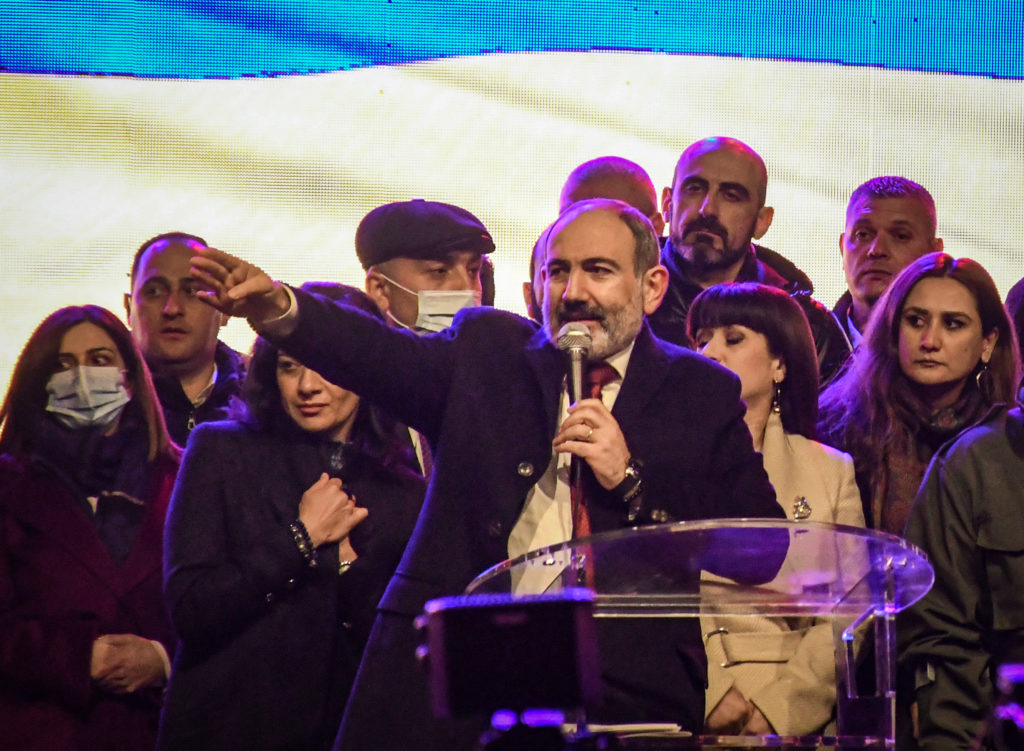YEREVAN
Armenia’s Civil Contract party led by the acting Prime Minister Nikol Pashinyan will not make alliances with other parties to run in the early parliamentary election on June 20, Lilit Makunts, the head of the ruling My Step alliance, said.
The snap poll was agreed only after months of street protests and political disorder following Armenia’s effective capitulation to Azerbaijan in last year’s decisive, 44-day blitzkrieg by Baku. Azerbaijan took back seven regions that Armenian forces had occupied since the early 1990s. It also lost the historic, strategic city of Shusha inside the formerly Soviet autonomous district of Nagorno-Karabakh.
Pashinyan says Armenia had no choice but to agree to the Russian-brokered truce or face the prospect that the smaller parts of Nagorno-Karabakh still held by ethnic Armenian separatists might be lost as well.
But detractors nonetheless blamed him for the battlefield humiliation and demanded he quit.
Pashinyan resigned in April making way for a snap election.
“The leadership of the Civil Contract party has made the final decision: we will take part in the elections as a separate party, we will not participate in any alliance,” Makunts said in an interview to the Armenian Public Television.
Pashinyan appears to be in a commanding position in the run-up to the elections, with polls showing his party with a huge lead over a few mostly tiny, ultra-nationalist parties.
“If this popularity rating is true, then with a small turnout, the number of votes in his favor may surge to 40 percent, and if administrative resources are used, the support for Pashinyan may grow up to 50 percent plus votes, and that would be a first-round victory,” Aleksandr Iskandaryan, director of the Yerevan-based Caucasus Institute, said.
The Civil Contract is a part of the ruling My Step alliance, which gained the majority in parliament in December 2018 following the peaceful revolution led by Pashinyan, who swept to power directly due to the extreme unpopularity of the government of the time, which was mired in corruption scandals and had very little public support.
Armenia’s former President Levon Ter-Petrosyan suggested an idea of uniting with two other former presidents – Robert Kocharyan and Serzh Sargsyan – to run in a bloc against Pashinyan’s party.
But the idea was rejected by both ex-presidents – and criticised by Pashinyan, who said that the country’s first president, Ter-Petrosyan, “decided to arrange a kleptocratic revolution.”
“In the course of his oppositional political activities, Levon Ter-Petrosyan twice tried to effect a change of government or a revolution,” Pashinyan said at the parliament.
“Mr. Ter-Petrosyan decided to try again, this time to make a kleptocratic revolution, but this (idea) would not be crowned with success.”

